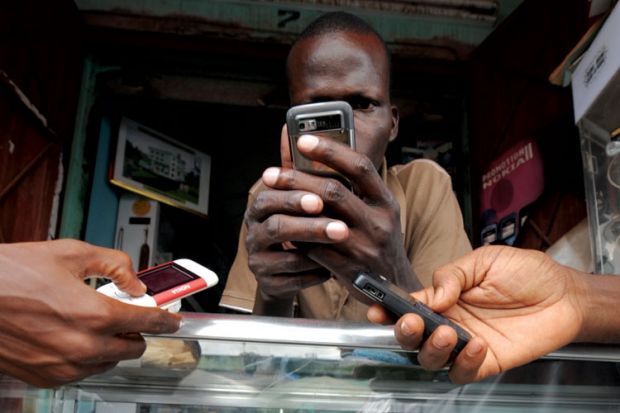In the quest for a decent livelihood, the ability to afford necessities, provide quality education for oneself and one’s family, access proper healthcare, and have disposable income for food and savings is paramount. This understanding is driving a new wave of digital transformation in Africa, with Ghana at the forefront.
Digitalization has become a buzzword in Ghana, potentially transforming how businesses operate and how education is delivered. The question is, are Ghanaians ready to embrace this digital revolution? And what is the situation for the rest of the continent?
Nearly 300 million Africans live more than 50 km from a fiber or cable broadband connection; hence, the lack of widespread availability of high-speed (broadband) internet remains a significant hurdle for Africa to harness the full potential of digital transformation.
Mobile devices remain the primary way people access the internet today, and dedicated internet connections to homes and offices (such as with fiber-to-the-premise) are mostly absent, except in some capital cities. Dependence on mobile rather than fixed-line broadband means unmetered pricing or limited data use. The concept of unlimited data is not very common in Africa.
However, the mobile phone revolution has opened the door to private sector investment in telecoms, and new business models and services have extended sustainable communication services significantly further. The value chain of digital infrastructure networks has been unbundled, and new private sector players are developing network infrastructure like independent broadband operators and tower companies.
Empowering Coastal Communities
A glance at the poverty map for Ghana reveals that the poorest regions are the coastal areas, where fishing is the primary livelihood. Despite abundant fish in the ocean, the locals struggle to make ends meet. This paradox has sparked a desire for change. One company leading this change is Insana, co-founded by a local entrepreneur.
Insana works with artisanal fishermen, eliminating the intermediaries and directly connecting the fishermen with the broader market. This approach ensures fair prices for the fishermen and guarantees fresh fish for consumers. The company has also introduced a digital platform where fishermen can log in and record their catch, streamlining the process and making it more efficient. This initiative is a testament to the transformative power of digitalization in traditional sectors.
The digitalization journey in Tanzania is still in its early stages, but there is significant government interest in digitizing critical sectors of society and the economy. This is reflected in the country’s five-year national development plan. However, turning Tanzania into a regional digital hub will require significant investments.
Given the country’s many competing priorities, any investments to support Tanzania’s digitalization agenda will need deliberate efforts based on informed guidance.
A study conducted by GSMA aims to support broader government efforts by investigating the drivers of digitalization in Tanzania, investments and policy enablers, gaps and ecosystem challenges, reasons for blockers to faster digitalization, existing strengths that can be harnessed, and opportunities for value creation in the digital economy. The study also identifies actions and agendas that need to be prioritized for faster results.
Another promising venture is the Freedom Coin, a digital currency facilitating trade among African countries. This blockchain-based currency is expected to revolutionize cross-border trade and is a clear example of how digitalization can transform economic systems.
Fueling Economic Transformation in Africa
Africa is one of the fastest-growing crypto markets in the world, according to Chainalysis, but remains the smallest, with crypto transactions peaking at $20 billion per month in mid-2021.
Kenya, Nigeria, and South Africa have the highest number of users in the region. Many people use crypto assets for commercial payments, but their volatility makes them unsuitable as a store of value. Retail users rather than institutional investors essentially powered this growth. Chainalysis reported that African markets see “a bigger share of [their] transaction volume made up of large retail and small retail-sized payments than the global average.” This indicates “higher grassroots adoption amongst everyday users.”
In the rural regions of Ghana, companies like Summer Life are making a difference. Summer Life works with women in the shea butter production chain, providing them with resources and training to improve their production process. The company also uses social media platforms to market and sell its products to international clients.
These initiatives are just a few examples of how digital transformation in Africa changes livelihoods. They represent a new dawn for Africa’s economic transformation, driven by entrepreneurship and digital innovation.
However, the journey is not without challenges. The pace of development needs to be accelerated, and opportunities need to be distributed more evenly across the country. Despite these challenges, the spirit of innovation and tenacity remains strong, fueling the hope for Africa’s brighter future.

